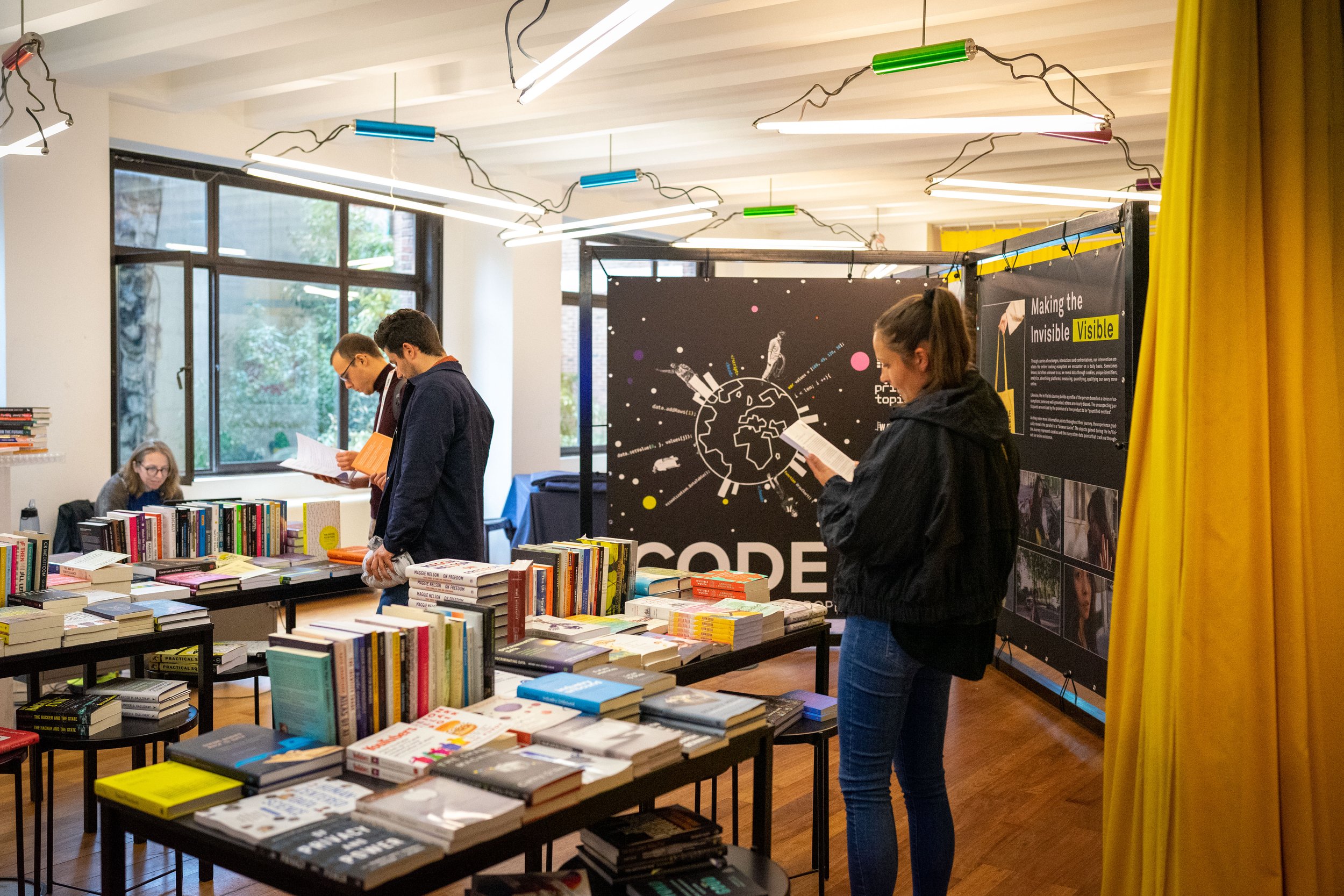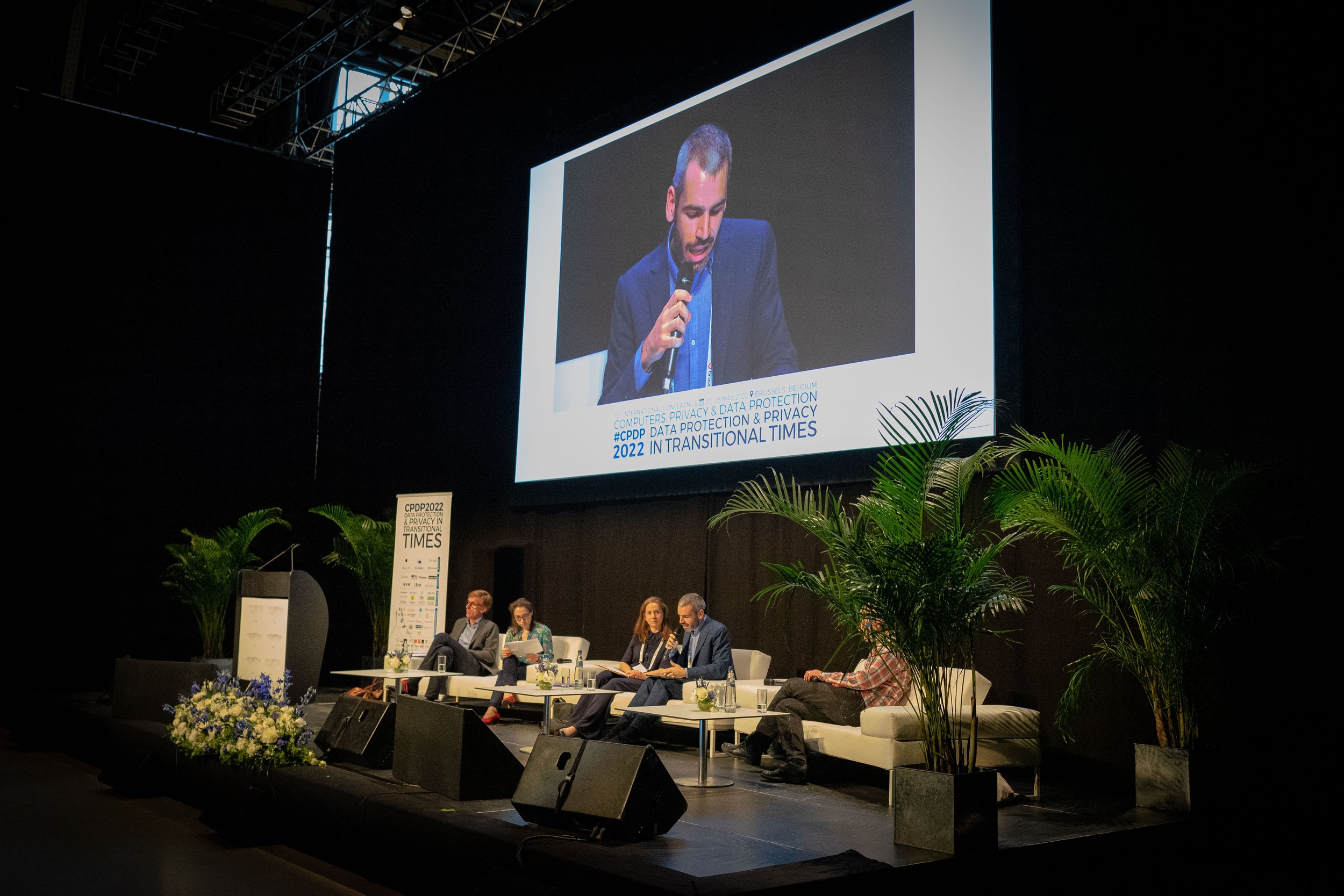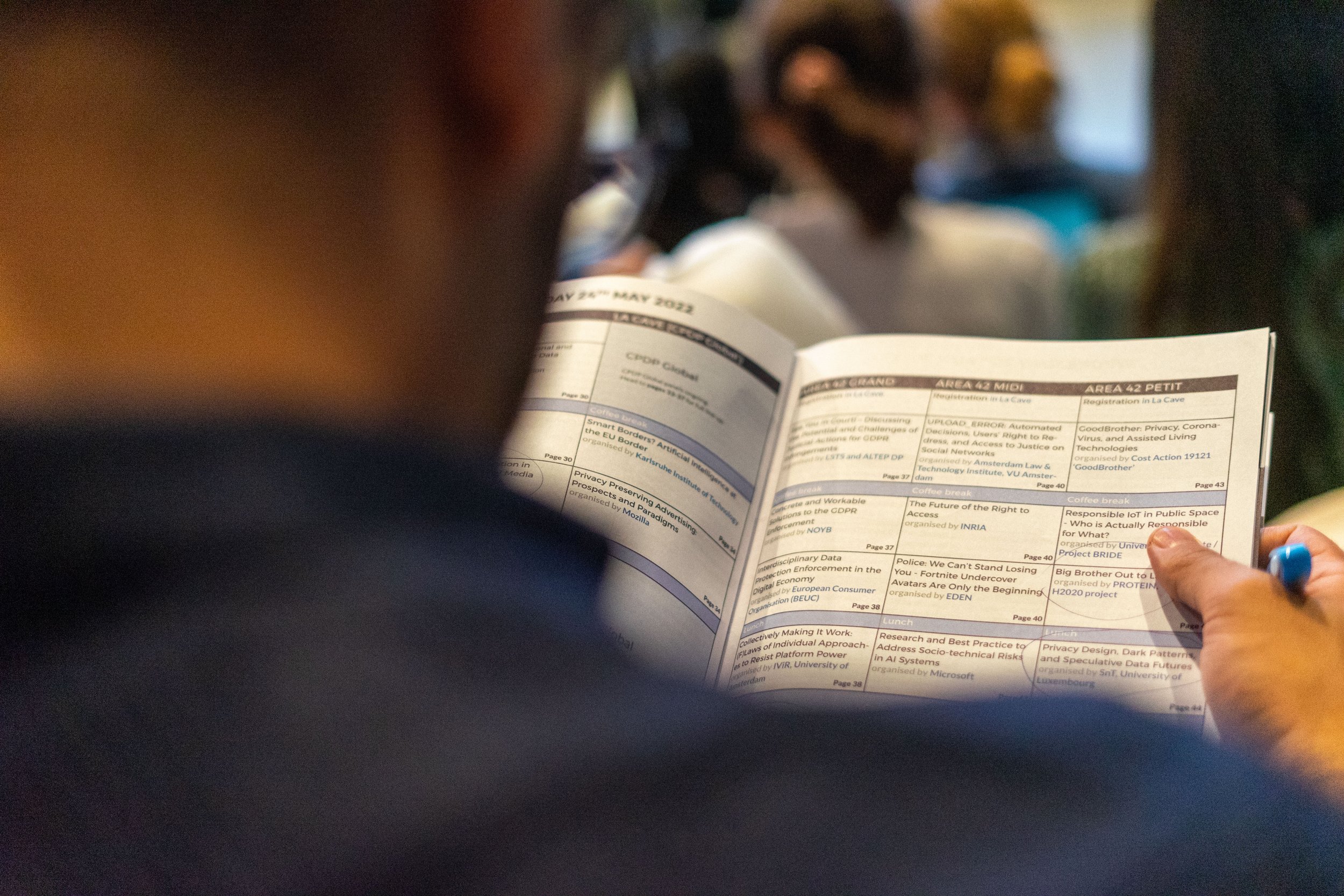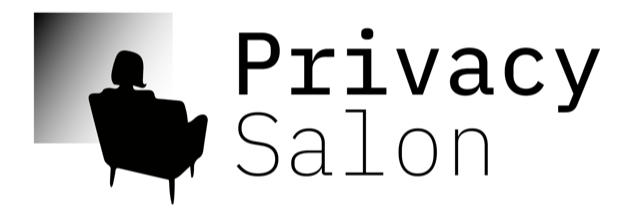Call for Papers & Panels are out now!
About CPDP.ai 2025
Data governance, AI, and privacy: The world is watching! The European Union has produced digital legislation at an astonishing rate, both regulating to control existing technological phenomena – such as AI – and to shape specific social constructs built upon technical phenomena – such as the European Health Data Space. Perhaps more than ever, EU digital frameworks are expected to cast regulatory shadows across the world.
However, while the Brussels effect may have proliferated specific privacy and data protection practices worldwide, it also risks reinforcing existing global power dynamics. Stringent EU data export rules can, for example, hinder the competitiveness of the Global South. Besides, many other actors shape digitalisation in very different ways, especially in times of geopolitical change. In such a context, can we expect the norm-setting, global influence of European legislation in the data protection and privacy fields to be paralleled and even strengthened in related digital legislation areas? The Brussels effect of AI regulation may be blunted by the complexity and diversity of the governance arrangements that are created through political processes at many levels, from the local to the global.
These may cut across the high aims and stringent rules adopted in Brussels, and lead to a false sense of security and lack of public confidence in the safeguarding of information rights and other values in an AI-driven world. Challenges for privacy and data protection are complicated further by surveillance and data grabbing practices that constrain policymakers, industry and other digital actors. Consumer expectations and technological innovations also have a role to play. To navigate these complexities, perhaps more than ever, and in more than one way, legislators, governments, regulators, data protection officers, civil society, industry and academia across the globe are watching the digital world, and each other.
Call for Panels
CPDP.ai will assess the relationship between fundamental rights and technological progress, highlighting the crucial role that data protection must play in safeguarding individuals in a world where nearly every digital action is potentially surveilled for large databases, which may be used for unaccountable and discriminatory purposes by states and companies. If you are eager to contribute to CPDP.ai’s mission, then we invite you to suggest a panel for the upcoming edition.
Note: The calls for research papers and for interactive workshops will be published In October and December respectively.
This call for panels is aimed at research organisations (universities, research projects, think tanks and others), public sector bodies, and civil society groups active in the digital governance field. We welcome proposals that explore the many challenges of our digital lives. In an increasingly surveilled and digitised world and amidst the complexities of technological innovation and geopolitical tensions, what role can data protection play in ensuring the protection of fundamental rights? The world is watching.
We encourage panels that are well-balanced, multidisciplinary, and diverse in terms of geography, culture and gender. We also welcome different types of sessions, including debates, roundtables, workshops, and non-conventional formats. If you are uncertain whether your idea fits into the call for panels, or should be submitted to the call for workshops, please contact the team. More information about the rules for panel composition and submission can be found below.
We kindly ask that all interested partners carefully read and adhere to these panel composition rules. The CPDP.ai Programming Committee reserves the right to propose changes to panel submissions as a condition for acceptance, or to decline the submission altogether should it not adhere to the rules below, or for any other reason relating to the quality of the panel, or its suitability in the context of the conference.
For-profit organisations interested in organising a panel at CPDP or otherwise wishing to support the conference can refer to our sponsorship page or to reach out to info@cpdpconferences.org for further information.
We welcome submissions on any novel and intriguing subjects related to digital society - including but not limited to legal topics and including but not limited to data protection topics.
-
What does the spree of recent digital legislative initiatives, and digital legislation – in the EU and beyond – imply within and beyond law, and which perspectives might usefully be brought to bear on unpacking these implications?
In a digital society in which change and novelty seem ubiquitous, how can we maintain social and legal stability, and in which respects, and how far, should this be a goal?
How are ongoing political shifts evident in the EU – and beyond - reflected in our understanding of privacy and data protection, and what are the implications of this?
How do different data protection stakeholders best work together to address upcoming challenges in privacy and data protection?
How is the interplay of innovation and regulation constructing the social dimension of the digital world (e.g. considering the Health Data Space, eIDAS)?
Is there a gap to bridge between common – citizen – understandings of modern digital law, and practitioner - legislator/academic/lawyer etc. – understandings of modern digital law, and if so, what form does this gap take, and what are its implications?
How does citizen and civil society participation in data protection and AI regulation relate to the role of experts and academic specialists?
Can the AI Act effectively protect fundamental rights?
What type of norms and rules should apply to Large Language Models and Generative AI, and how can rules be enforced, locally and globally?
How does online and offline culture shape the privacy and data protection agenda?
How are the Digital Services Act and the Digital Markets Act affecting norms and practices outside Europe?
How can data protection practices and regulations safeguard human dignity as automation and artificial intelligence use increase?
Can surveillance capitalism be justified? How?
How do authoritarian and democratic structures differ in their use of digital technologies?
Data protection officer, privacy officer, personal data advisor… what’s in a name? Or, how do different organisations deal with data protection requirements?
How do data protection officers work together with supervisory authorities?
What is the evolving role of the data protection officer in a changing world where legal and technological evolutions, like the AI Act, challenge them more and more?
Past Editions










History
Computers, Privacy & Data Protection (CPDP) is a non-profit platform originally founded in 2007 by research groups from the Vrije Universiteit Brussel, the Université de Namur and Tilburg University.
The platform was joined in the following years by the Institut National de Recherche en Informatique et en Automatique and the Fraunhofer Institut für System und Innovationsforschung and has now grown into a platform carried by 20 academic centers of excellence from the EU, the US and beyond. As a world-leading multidisciplinary conference CPDP offers the cutting edge in legal, regulatory, academic and technological development in privacy and data protection.
Within an atmosphere of independence and mutual respect, CPDP gathers academics, lawyers, practitioners, policy-makers, industry and civil society from all over the world in Brussels, offering them an arena to exchange ideas and discuss the latest emerging issues and trends. This unique multidisciplinary formula has served to make CPDP one of the leading data protection and privacy conferences in Europe and around the world.
Contribution
CPDP has a variety of contributing formats, which translate into partners, sponsors and supporters. Partners organise panels and pay a panel contribution to compensate for the fact that panellists do not have to pay registration fee.
There are two types of partners: (1) ‘Conference Partners’ is a format developed for academic centres of excellence that organise a panel at CPDP and are also involved in scientific activities such as reviewing the call for papers; (2) ‘Event Partners’ is a format for other public and private institutions and research projects that organise panels at CPDP; Sponsors contribute a certain sum of money in exchange for visibility. Some sponsors are also involved in organising panels others only have one or more speakers at the conference. There are three main levels of sponsorship: ‘Platinum, Premier and Event Sponsors’; Finally ‘Moral Supporters’ and ‘Media Supporters’ do not contribute financially or organise panels but provide moral support and/or press coverage to the conference.




